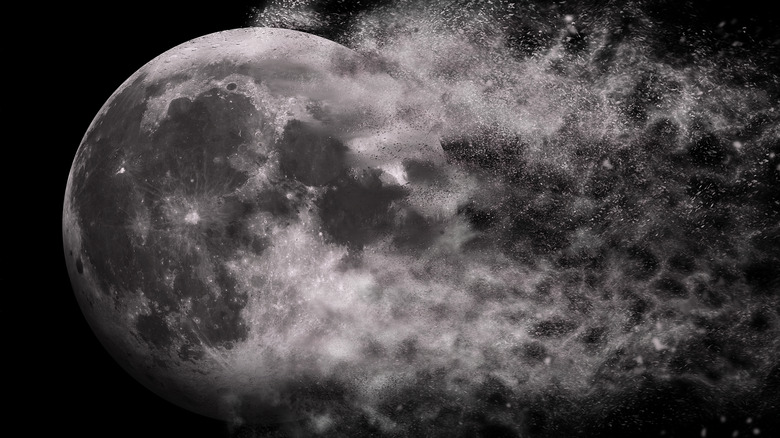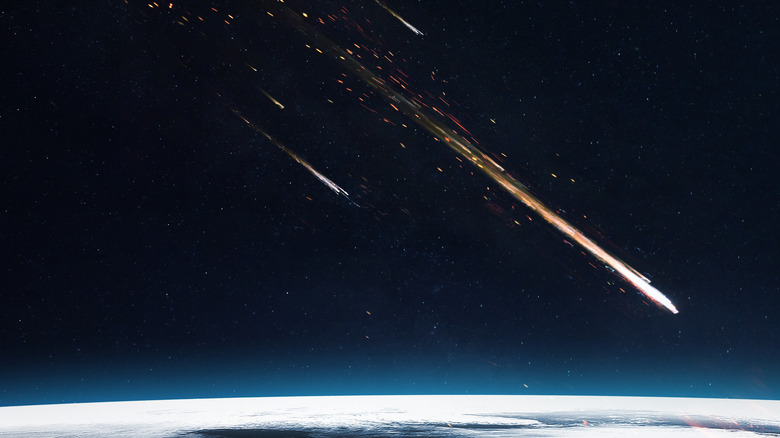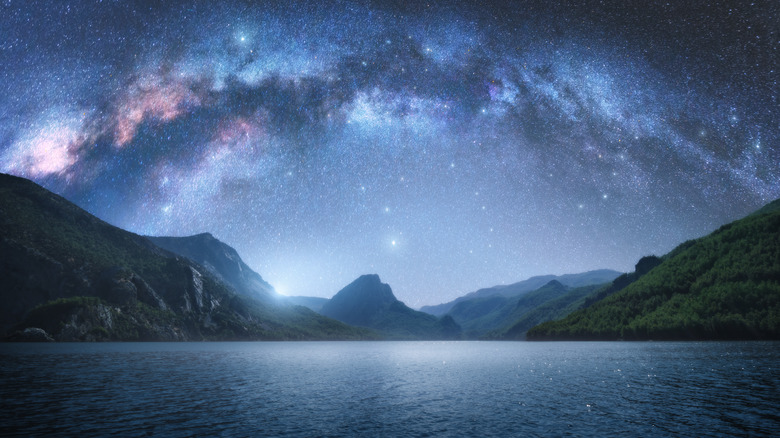Here's What Would Happen If The Moon Suddenly Exploded
Ah, the moon. Is there any other part of nature that has so captivated humanity since the dawn of time? The moon has inspired countless songs, endless paintings, infinite legends. From poets to werewolves and everyone in between, we all rely on the moon showing up in the sky and going through the same light-shadow cycles every month. Many an artist considers the moon the essence of beauty, light, and reliability.
It also happens to be a chunk of rock hurtling through space, which means, like any other chunk of rock, it could be blown up. It's big enough that creating such an explosion wouldn't be easy — various writers have suggested hitting it with good old-fashioned antimatter (via Predict) — but if we could, it would look super cool, which is really all the justification we need to do it. "Gravitational disturbances" might do it without any help from us. If something sufficiently large were to strike our moon, that might cause it to explode, too — again, without our help. Whatever the cause, what would happen if the moon exploded?
What would happen to all the moon pieces?
As Forbes points out, what would happen to the moon itself depends almost entirely on the size of the explosion. A sufficiently large explosion would simply send the moon pieces hurtling into space (though if enough of these pieces collided with earth, it could lead to fun things like the oceans boiling and mass extinction of life, according to Predict). If the explosion were weak enough, the moon pieces wouldn't be able to escape each other's gravity, and would eventually just re-form themselves into Moon 2.0.
If the blast was just the right magnitude, however — big enough to pulverize the moon, but not big enough to send it hurtling away from Earth — potentially, Earth could end up with multiple moons, or even a nifty little ring system around the earth, just like Saturn has (in fact, NASA suggests that this is exactly how Saturn got its rings). Which — we dunno, that sounds cool enough that it might be worth a shot.
Okay, but what would a moonless Earth be like?
A moonless earth would be kind of a mixed bag. In the first place, the night sky would be quite a bit brighter. The moon, as things currently stand, is by far the brightest object in the night sky (at about 14,000 times as bright as the next-brightest object, Venus). You'd be able to see more stars and have a clearer view of the Milky Way, which would definitely make astronomers happy (via The Nine Planets).
Beyond that, there aren't a whole lot of upsides. Tides, being caused mainly by the moon's gravity, would stop almost entirely (though not quite entirely, because the sun's gravity plays a small role in tides as well). Eclipses, neither lunar nor solar, wouldn't be a thing anymore, which would be kind of a bummer. And the length of a day would be fixed forever at 24 hours. (Thanks to the moon's gravity, days have been lengthening by about 0.0016 seconds each century, according to I'm a Useless Info Junkie.)
All these effects would pale in comparison to the much more frequent ice ages, though. Turns out the gravity from the moon helps stabilize the earth's rotational tilt. With the moon gone, the earth would start to wobble wildly, sometimes even tilting more than 45 degrees, and resulting sometimes in tropical poles and frozen equators, according to Forbes. Large chunks of us would all freeze and/or burn and/or starve. So maybe let's just leave the moon where it is, cool or not.


